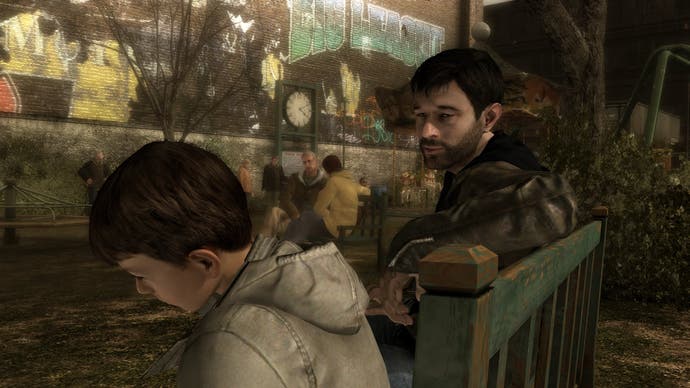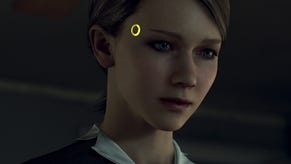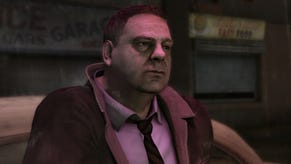Heavy Rain
Send in the clouds.
However, while the writing sometimes lacks poetry or restraint, it never lacks compassion and bravery, whether it's young Shaun Mars trying to tell his dad that his brother's death was nobody's fault, or the way Scott Shelby speaks to a young mother who has so little left after the death of her son that she's selling herself. While the mechanics provide the framework for emotional investment in these characters, these scenes secure it. You may end up shocked by how much you liked certain people once the truth breaks from behind the clouds.
Heavy Rain can't be accused of narrative dysfunction either. It's possible to solve the mystery by losing or saving people in various circumstances, relying on different methods to reach your goals, and all without upsetting the rhythm and coherency of the story. Considering the number of possible outcomes, particularly in the latter stages when pivotal events come thick and fast, this is a considerable achievement. Despite the developer's evidently lofty goal, Heavy Rain isn't precious about its alternative outcomes, either, allowing content-hungry gamers to pick the story up from particular scenes and continue in a different way to try and make new things happen, rather than having to start the game over.
Nor is it a technical wimp. Like last year's Uncharted 2, Quantic Dream uses performance capture, and with similar success. Facial detail is capable of sufficient subtlety that one of the defining twists is foreshadowed by twitches you can go back and look for afterwards and curse yourself for not noticing. Environmental detail is less attention-seeking, but is of a very high quality, and in a game where rainfall plays such a key role it's perhaps no surprise that some of the game's most beautiful sights are reserved for water. Watch out for the fish tank, and a particularly dreamlike, practically astral sequence towards the end.

Of course, there are also a few technical weaknesses. Some of the on-screen icons are quite similar to one another, which can be costly - particularly at the end of the game - and while the majority of Heavy Rain's mysteries are broad, with solutions built through action or inaction across a range of scenarios, there are a couple of occasions when it resorts to what are effectively common-or-garden puzzles, and these feel out of place. And just as the script doesn't quite sell a fleeting romance at one point, the on-screen kissing animation makes a bit of a mess of it too.
Heavy Rain also won't be for everyone. Not everyone will accept the way it sometimes offers prompts even when they may have no impact on actual events. For all the game's flexibility and manifold outcomes, there are also times that you may wish to do something that is not available, as the illusion of free will and suspension of disbelief strains at the writer's narrative leash. Perhaps most damning, for some, will be the realisation as the game reaches its narrative apex that the bonds of empathy it has fought to establish were somewhat diversionary.
It would be a shame to look past Heavy Rain for these reasons, however, because while it is an intricate game that deserves to be debated for a long time, it is also a simple one to enjoy: a thrilling mystery, cleverly composed, and unlike anything else you will play this year. It may also be the only game you play this year where pulling the trigger makes you really feel something, and I can think of no greater compliment.








